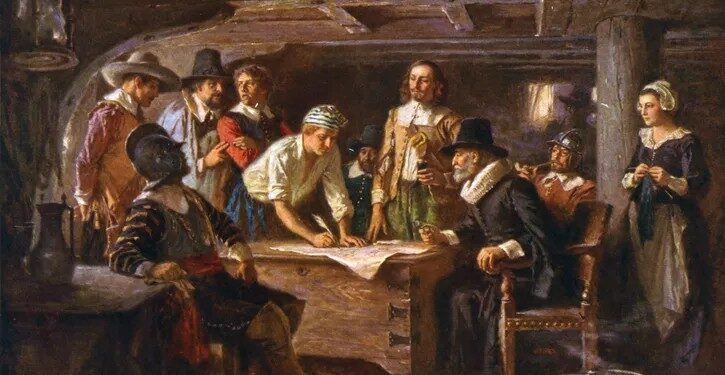A defining moment in early colonial governance
The signing of the Mayflower Compact in November 1620 marked a pivotal step in establishing self-governance among English settlers in North America, laying an early foundation for constitutional order in the emerging colonies.
The context behind the agreement
When the Mayflower arrived off the coast of present-day Massachusetts, the settlers found themselves outside the jurisdiction of the Virginia Company, which had originally authorised their voyage. This unplanned deviation created legal uncertainty and fuelled tensions among passengers with differing loyalties and expectations. To avoid disorder and ensure cooperation in an unfamiliar territory, leaders among the group sought a framework that would bind all adult male passengers to a collective set of rules and responsibilities.
The content and purpose of the document
The Mayflower Compact established a “civil body politic,” committing its signatories to enact and obey laws designed for the general good of the colony. It did not outline detailed governance structures, nor did it create a formal constitution. Instead, it provided a basic but crucial principle: that legitimate government required the consent of the governed. This concept, modest in form at the time, would later echo throughout American political thought and influence broader democratic development.
Its immediate impact on the colony
In practice, the Compact offered the settlers a shared understanding at a moment of vulnerability. Facing a harsh winter, limited supplies, and an unknown environment, the agreement helped stabilise relations and provided the authority needed to establish leadership roles and communal decision-making. The early years of Plymouth Colony remained difficult, but the Compact ensured that governance decisions rested on collective assent rather than coercion or external mandates.
The broader legacy of the Compact
Although brief and pragmatic, the Mayflower Compact is often regarded as a precursor to later constitutional developments in North America, including colonial charters and, eventually, the United States Constitution. Its core idea—that a community could shape its own government through mutual agreement—resonated far beyond the circumstances of 1620. It remains a significant symbol of participatory governance, civic responsibility, and the early political culture of New England.
Newshub Editorial in North America – 2025-11-21



Recent Comments